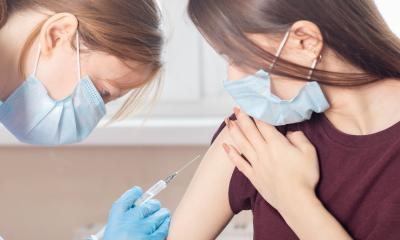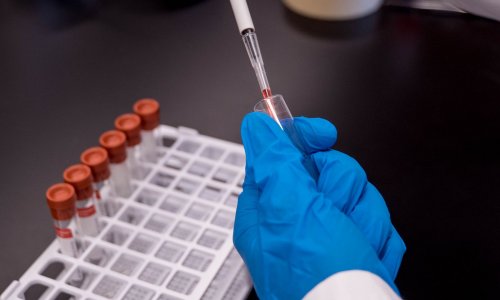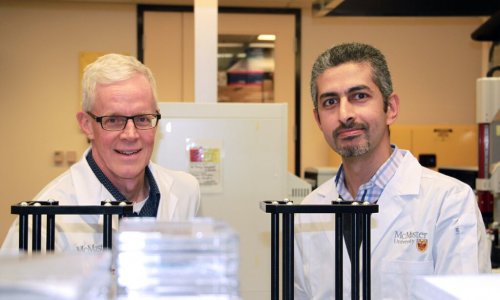News • Transmission prevention
One-two punch against malaria
Combining a new compound with old drugs could provide an effective remedy against malaria and drug-resistant parasites.
Significant headway has been made in controlling malaria. However, two vexing problems remain: Currently available treatments are unable to block transmission of the parasite that causes the disease, and the parasite often becomes resistant to drugs. According to a new study led by researchers at Columbia University Medical Center (CUMC), there is a class of compounds that could address both of these problems. The compounds, called hexahydroquinolines (HHQs), were found to be highly effective in preventing the transmission of Plasmodium falciparum parasites from an infected host (a mouse model) to mosquitoes. As an added bonus, parasites that became resistant to HHQs were also hypersensitive to several widely used first-line antimalarial treatments.
A malaria patient who is treated with conventional drugs may carry transmissible parasites for several weeks after treatment.
Manu Vanaerschot, PhD
“The identification of these compounds is a very promising step forward,” said study leader David A. Fidock, PhD, the C.S. Hamish Professor of Microbiology & Immunology and professor of medical sciences (in medicine) at Columbia. “HHQs and existing antimalarials could be a potent one-two punch that prevents a carrier of the parasite from passing it on with the next mosquito bite and makes it harder for drug-resistant parasites to emerge.”
“If we hope to make further progress, it’s critical that we work on reducing transmission—especially in areas where infection rates are high, such as in parts of Africa, where an individual can be infected as many as 1,500 times per year—whether it’s with drugs, a vaccine, or genetic engineering of mosquitoes,” said lead author Manu Vanaerschot, PhD, a postdoctoral fellow in microbiology & immunology at CUMC. “A malaria patient who is treated with conventional drugs may carry transmissible parasites for several weeks after treatment. During that time, the patient can be a source of infection for mosquitoes that, in turn, infect other individuals.” Only one licensed drug, primaquine, can prevent malaria transmission, but it is highly toxic in people who lack an enzyme called glucose-6-phosphate dehydrogenase. About 30 percent of patients in malaria-prone regions have this enzyme deficiency, limiting primaquine’s use.
The two types of drugs create what we call opposing selective pressures. When the parasite develops resistance to one drug, it becomes more susceptible to the other. This makes it harder for the parasite to mutate and become drug-resistant.
David A. Fidock, PhD
In the study, the researchers screened 3,825 compounds with known activity against the parasite’s disease-causing, replicating asexual blood stage. Three of the compounds—all HHQs—greatly reduced the production of transmissible parasites in vitro. In tests with feeding mosquitoes and in mice infected with a malaria parasite, the compounds reduced the number of mosquitoes that picked up viable transmissible parasites.
Unexpectedly, the compounds also made several currently available antimalarials more potent. HHQs work by preventing the parasite from using the host’s hemoglobin as a food source. Currently available antimalarial drugs are thought to affect a later stage of the same process. “The two types of drugs create what we call opposing selective pressures,” Dr. Fidock said. “When the parasite develops resistance to one drug, it becomes more susceptible to the other. This makes it harder for the parasite to mutate and become drug-resistant.” Dr. Fidock and his colleagues are currently studying how to improve the potency of the HHQs and turn the compounds into a drug for clinical testing.
Source: Columbia University Medical Center
12.09.2017










